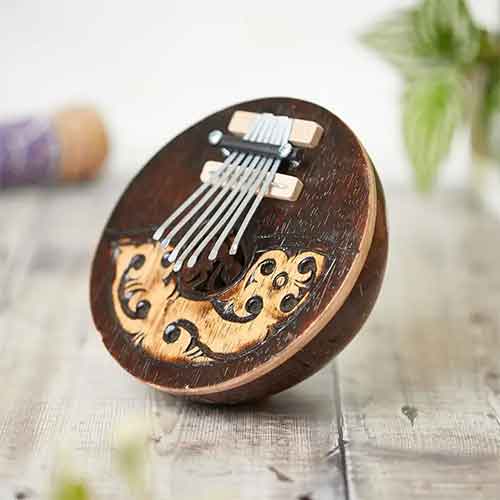Kombucha is a fermented drink made from sweetened tea, yeast, and bacteria. The yeast and bacteria form a symbiotic culture of bacteria and yeast (SCOBY) that ferments the tea over the course of several days or weeks. During fermentation, the SCOBY consumes the sugar in the tea and produces various organic acids, enzymes, and other compounds that give kombucha its distinctive tangy flavour. Kombucha originated in Northeast China around 220 BCE and has been consumed for centuries for its potential health benefits. It is now a popular health drink in many parts of the world and is often brewed and sold commercially.
Kombucha can be flavoured with a variety of fruits, herbs, and spices, and is often enjoyed as a non-alcoholic alternative to beer or wine. Below is a basic recipe of how to make kombucha at home but it is not recommended for beginners and should be made by an experienced fermentation expert to ensure safety. It’s important to use clean equipment and follow proper hygiene practices when brewing kombucha to avoid contamination by harmful bacteria. Additionally, be sure to buy a SCOBY and starter tea from a reputable source.
How to make kombucha?
Ingredients
- 1 SCOBY (symbiotic culture of bacteria and yeast)
- 1 cup of sugar
- 8 tea bags (black, green, or a combination of both)
- 1 gallon of water
- 1 cup of starter tea (previously brewed kombucha)
Equipment
- 1 gallon glass jar
- breathable cloth (like cheesecloth or coffee filters)
- rubber band
- glass bottles with airtight lids (for bottling)
Method
- Boil 1 gallon of water in a pot, then remove from heat and add 8 tea bags and 1 cup of sugar. Stir until the sugar dissolves, then let the tea steep for 10-15 minutes.
- Remove the tea bags and let the sweetened tea cool to room temperature.
- Pour the sweetened tea into a clean glass jar, then add 1 cup of starter tea and the SCOBY. Cover the jar with a breathable cloth and secure with a rubber band.
- Let the jar sit in a warm, dark place (around 75-85°F) for 7-10 days. The longer it sits, the stronger and more sour the kombucha will become.
- After 7-10 days, taste the kombucha. If it's too sweet, let it sit for a few more days. If it's too sour, it's ready for bottling.
- Using a clean ladle or measuring cup, transfer the kombucha to glass bottles with airtight lids. Leave about 1 inch of headspace at the top of the bottle.
- Let the bottled kombucha sit at room temperature for 1-3 days to let it carbonate. Once it's carbonated to your liking, refrigerate to stop the fermentation process.
Trying Equinox Kombucha (Review)
If you're on the lookout for a refreshing and healthy drink, kombucha might be a great option for you. Kombucha is a fermented green tea that's made by adding sugar to help it ferment with kombucha cultures. It's known for its probiotic properties that can improve gut health and boost the immune system. In this post, we'll be reviewing Equinox Kombucha, a brand that's available at Waitrose. Equinox Kombucha comes in a 275ml bottle and costs £2.50, which is relatively expensive for its size. The brand offers several flavours, including sloe berries, rose hip, juniper, chamomile, rhubarb, and lovage. We tried two flavours and were impressed with both.
The first one we tried was the sloe berries, rose hip, and juniper flavour. The drink smelled amazing, like a fizzy drink called Purdeys. It was refreshing and not too sweet, making it a perfect drink for summers. The second flavour we tried was the chamomile, rhubarb, and lovage one. It tasted sweeter than the first one and had more of a rhubarb taste. However, both drinks were equally refreshing and tasted great. Overall, we were impressed with Equinox Kombucha. It's a healthy and refreshing drink that's perfect for summers. Although it's relatively expensive, it's worth trying if you're looking for a health boost.
Kombucha (Frequently asked questions)
Is kombucha dangerous?
Kombucha is generally safe for consumption, but there are some risks involved if it is not made or stored properly. Kombucha is a fermented drink made from tea, sugar, and a symbiotic culture of bacteria and yeast (SCOBY). If the SCOBY is contaminated or the brewing process is not done correctly, harmful bacteria and toxins can grow in the drink, leading to illness or other health problems. Additionally, kombucha contains small amounts of alcohol, which can be a concern for people with certain health conditions or those who are pregnant or breastfeeding. It is important to purchase kombucha from a reputable source and to follow proper storage and brewing procedures to minimise any potential health risks.
What are the health benefits of kombucha?
Kombucha has been touted for its potential health benefits, although more research is needed to confirm these claims. It's important to note that these benefits are not guaranteed, and more research is needed to fully understand the potential health effects of kombucha. Additionally, kombucha should not be used as a replacement for medical treatment or advice from a healthcare provider. Some of the potential benefits of drinking kombucha include:
- Improved gut health: Kombucha contains probiotics that can help support healthy digestion and promote the growth of good bacteria in the gut.
- Boosted immunity: The antioxidants and other nutrients in kombucha may help support a healthy immune system, potentially reducing the risk of illness.
- Increased energy: Kombucha contains small amounts of caffeine and B vitamins, which may help improve energy levels and mental clarity.
- Reduced inflammation: Some studies suggest that the antioxidants and other compounds in kombucha may help reduce inflammation in the body.
- Lowered risk of chronic diseases: Some animal studies have suggested that kombucha may help reduce the risk of chronic diseases such as diabetes and heart disease.
Does kombucha contain alcohol?
Yes, kombucha contains a small amount of alcohol, typically less than 0.5% by volume. This is a natural byproduct of the fermentation process, which converts the sugar in the tea into alcohol and carbon dioxide. The alcohol content in commercially produced kombucha is typically low enough that it is considered non-alcoholic, but it may still be a concern for some people, such as those who are pregnant or have certain health conditions. It's important to check the alcohol content on the label before consuming kombucha, particularly if you are sensitive to alcohol or are avoiding it for any reason.
Up next: 16 Healthiest Herbal Teas









